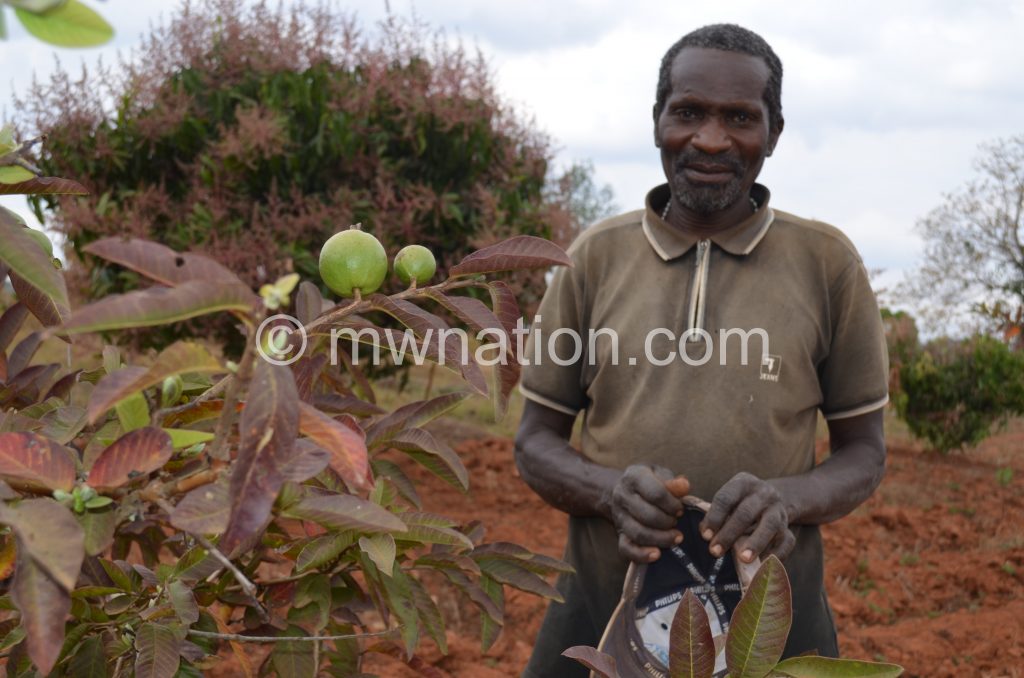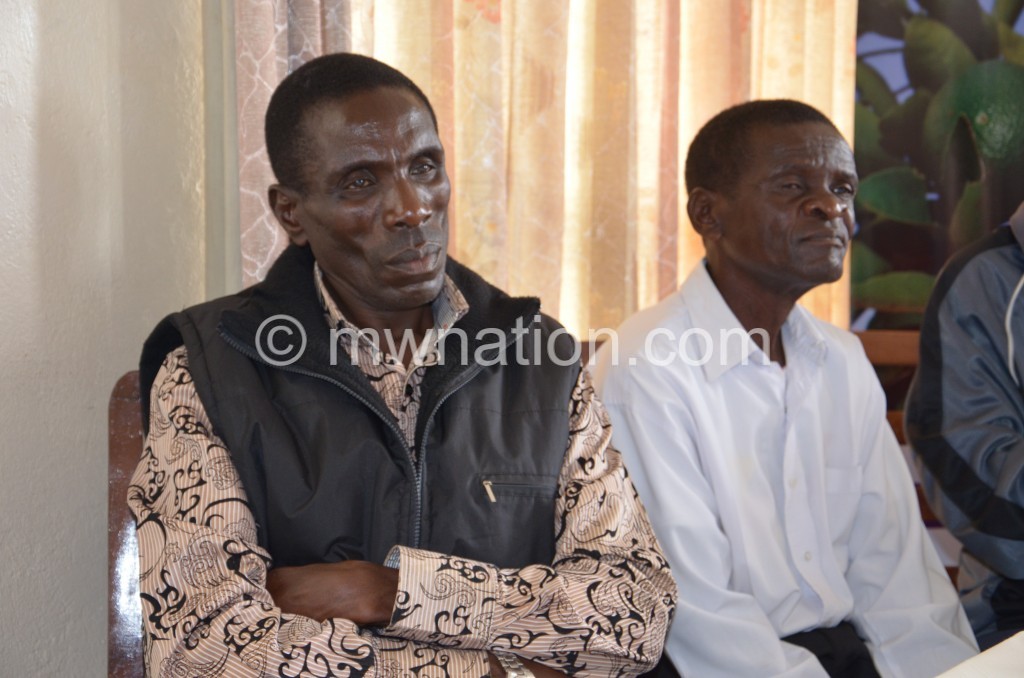Quality seeds for quality fruit
For decades, Victor Tembo has been churning out seedlings of fruit trees in Mkonyo Village near Ekwendeni. The farmer in Mzimba North embraced the nursery as business in 2000 and he nurtures up to 15 000 seedlings in his garden.
“This has been my way of life since 15 years ago when government with support from GTZ introduced nurseries in my area. Now, I am leading a comfortable life despite being a villager like any other,” he says.
Talking about comfort, nurturing and selling fruit seedlings reportedly earns the Tembo family no less than K2 million every year. This has enabled the Tembos build a four-bedroomed corrugated iron-roofed house, buy a television set, pay tuition fees for their son Vuso, a clinician at Queen Elizabeth Central Hospital as well as meet skyrocketing educational needs of another who is at secondary school. Besides, the household can afford better food, clothing and other basics—a signal of progress and more the reason his line of business must be taken seriously.
They sit back assured of a better future, but he is still striving to become one of the best pacesetters in the sector where gaps in the National Seed Policy left standards to the dogs.
His nursery is among a selected few that will soon be under tighter scrutiny, thanks to World Agroforestry Centre (Icraf). There may be no law in Malawi requiring him to do so, but the rural farmer has volunteered to be part of a ground-breaking quality-assurance trial in which about 50 farmers have volunteered to register their nurseries for routine inspections.

He was narrating his life story at a special training in Mzuzu City where most consumers whine about the influx of fruits from abroad. This is an aftermath of poor seeds, he says.
In his remote setting, tropical fruits—mangoes, guavas, paw-paws, bananas and citrus—are more common than temperate fruits such as apples, peaches, avocado pears and mulberries. However, Tembo’s line of business hinges on citruses, especially oranges, tangerines and lemons.

This speaks volumes about how Malawians love fruit crops, but seems to have little or no regard for quality of the final product.
This is a national tragedy, says Amon Phiri, the horticultural officer in the Department of Crops Development.
“Introduction of fruit crops and forestry trees has led to the establishment of numerous seedling nurseries across the country, but nothing much has been done to improve the standards,” said the Ministry of Agriculture official.
Malawi adopted a National Seed Policy in 1993.
According to Phiri, the prevailing problem is that the policy comes short of defining seeds as fruits, stems, roots, leaves and anything with the capacity to degenerate into a new plant.
“In effect, the seed policy, which is under review, stresses more on food crops like maize and cash crops like tobacco than fruit crops and forestry trees,” says Phiri.
Located at Chitedze Research Station in Lilongwe, Icraf is part of the ongoing reforms of the seed policy to ensure quality trees on every farm. The move also include proposals to turn the State-run nursery unit at Chitedze and Lunyangwa research stations into an independent seed inspectorate—either a commission or an authority.
The centre is running the planting of farm trees in five districts for sustainable access to firewood, fruits, animal feed and soil fertility. In their talk, they narrow the initiative down to four Fs: food, fuel, fodder and fertliser.
When it comes to the F for fruits—quality fruits—Icraf programme manager Bruce Sosola cites poor seeds and seedlings as one of the fresh harvest from local farmers that appear inferior to unnecessary imports that dominate the shelves of several supermarkets.
“Most of the fruits in our midst are substandard,” he says. “In both rural and urban areas, it is not surprising to see self-styled nursery operators selling seedlings originating from seeds collected from marketplaces. Typically, the seedlings are unlabelled, poorly looked after and unlikely to bear the quality fruit the sellers promise.”
To reverse the trend, Icraf is training the likes of Tembo in nursery management, registration and certification. The initiative targets businesspeople with at least 10 000 seedlings who are earmarked to voluntarily register their nurseries inspectors to put their seedlings under tighter scrutiny.
”Icraf with support from the Irish Government saw a widespread gap in the quality of planting materials on the market. Through the trainings, we want to produce nursery operators who will produce seedlings that are up to standard,” explained Sosola on the sidelines of the Mzuzu leg.
With these inroads, he calls for government to support the enforcement of the set of technical rules aimed at achieving quality in the free-for business of seedlings. But setting standards and enforcement hinge on the availability and viability of a relevant policy.
As the policy review continues, Malawi risk becoming a potential producer of unmarketable fruit due to gaps in a document which was supposed to guide the sector’s growth.
Phiri commends Icraf for kick-starting the optional quality checks which will become mandatory when the amended policy is passed.





